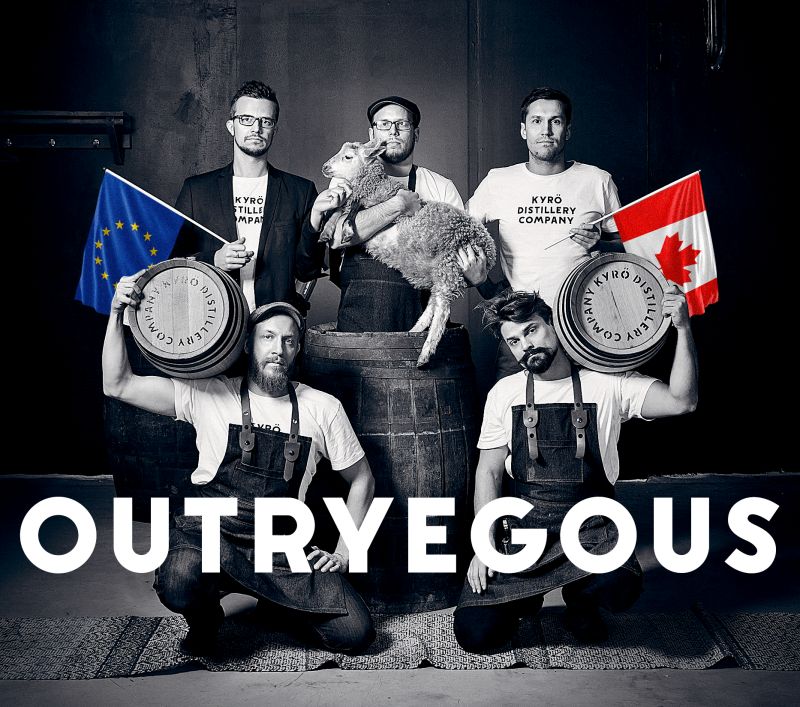The Spirits Business reported on Tuesday that a two-decade-old agreement between the EU and Canada prohibiting European producers from using the term “rye whisky” on labeling was now being enforced.
Many European distilleries are already facing existential threats from tariffs and higher production costs, so the news was unwelcome to say the least.
Finnish Distillery Kyrö has specialized in rye whisky production for ten years, and as of April 1 the brand was disbarred from calling its rye whisky, “rye whisky.” Kyrö uses 100% Finnish Rye in its mashbill, and the brand referred to the new agreement as “outryegous” especially since a lot of Canadian “rye whiskies” don’t use mashbills composed exclusively of rye.
Other distilleries that work with rye are “quite frustrated” with the agreement, like Alex Munch, Chief Marketing Officer and Co-Founder of Stauning Whisky.
“Rye, being a raw material used for whiskies in several different countries, should not be trademarked in the EU,” Munch told The Spirits Business. “Protecting the use of the raw material is akin to saying that outside of France, you can’t use the words ‘grape’ or ‘wine’ in your product description.”
Though Munch expressed to the outlet that he understood the urge for Canada to protect its whisky production based on designation or production process, he claimed that the way the agreement stands doesn’t work. Over the last two decades, a lot of whisky brands have emerged in Scandinavian countries, like Denmark. Rye grain is essential to their production process.
According to The Spirits Business, several whisky producers in Canada did not know about the agreement when it was signed over twenty years ago. Granted, many whisky brands in Scandinavia were in their infancy, but due to the burgeoning whisky industry within the region many brands might get their local politicians involved.
“It is our analysis that this rule provides very limited value to Canada while creating an unnecessary obstacle for smaller European producers,” said SMV Denmark Industry Manager Kasper Munk Rasmussen according to The Spirits Business. “Therefore, I expect there will be broad interest in solving this problem.”

No responses yet